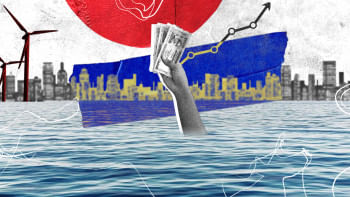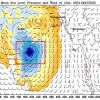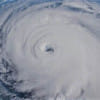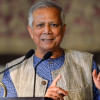World Ocean Day: How MSP can help us navigate the blue frontier

The ocean, a vast expanse of blue mystery, has long been a source of sustenance, wonder, and intrigue. As we observe World Ocean Day today, it is imperative to reflect on the relationship between humanity and the sea, particularly for maritime nations like Bangladesh, whose destiny is inextricably linked to the marine waters that surround it.
Cradled by the Bay of Bengal, Bangladesh boasts a maritime area almost as vast as its terrestrial territory. This marine space is not just a buffer against the elements, but a treasure trove of resources that, if harnessed sustainably, could propel the nation into a future of prosperity and stability. However, an issue persists: how can Bangladesh navigate the complex waters of marine resource management to ensure a balance between economic growth and environmental preservation?
The answer lies in the adoption of marine spatial planning (MSP), a strategic approach that goes beyond traditional resource management. MSP is not merely a tool for allocation; rather, it is a vision for harmony between human activities and the marine ecosystem. It is a process that calls for stakeholders—fishermen, policymakers, scientists, and conservationists—to come together in crafting a blueprint for the ocean's future.
At its core, MSP is about understanding the spatial distribution of marine resources and the myriad interactions that occur within the marine environment. It is about making informed decisions that account for the cumulative impacts of human activities, ensuring that the ocean's health is not compromised for short-term gains.
The Intergovernmental Oceanographic Commission (IOC) of UNESCO describes MSP as a "public process of analysing and allocating the spatial and temporal distribution of human activities in marine areas to achieve ecological, economic and social objectives that have been specified through a political process." This definition underscores the multifaceted nature of MSP, highlighting its role as a mediator between competing interests and its potential to foster sustainable development.
A central debate in the realm of MSP revolves around its primary focus. Should MSP prioritise the extraction of marine resources, or should it champion the cause of environmental protection? This contradiction, however, is a false one. The true purpose of MSP is to find a middle path—a path that allows for the responsible use of marine resources while safeguarding the marine environment for future generations.
Expert researchers have weighed in on this debate, offering insights into the purpose of MSP. It is a decision-making framework that aids planners and policymakers in optimising the use and management of the sea, and is also a means to implement ecosystem-based management, helping countries identify areas for biodiversity conservation and sustainable economic development. MSP equips policymakers with the necessary information for strategic planning of current and future resource use. It seeks to balance the objectives of nature conservation and resource utilisation in a manner that is sustainable and equitable.
For Bangladesh, the implementation of MSP is both a challenge and an opportunity. This is because the MSP implementation process in any country depends on certain necessities, such as adequate legal and policy adoption and application; coordination and integration of complex political and economic elements including national, regional, and global institutions; improving mechanisms to avoid and resolve marine environmental conflicts; preventing and reducing environmental degradation; strengthening and developing marine environmental laws and compliance; and above all, ensuring community participation.
Bangladesh has successfully delineated its maritime boundaries through two landmark legal victories against India and Myanmar, laying the groundwork for MSP. However, the journey ahead remains challenging. The lack of an integrated legal and policy framework is a significant hurdle. Existing plans and laws are fragmented, spread across various sectors and departments without a cohesive strategy. This fragmentation hinders the effective management of marine resources and the adoption of a holistic approach to MSP.
Coordination and integration are also lacking. No single policy or law has succeeded in uniting all relevant departments under a common MSP agenda. The result is a patchwork of sector-specific plans that fail to address the interconnectedness of marine issues.
Information and data on marine resources are scarce. Without robust marine research and data collection, MSP cannot be effectively implemented. The limited scope of existing marine research institutions and their activities underscores the need for a concerted effort to gather comprehensive data on the Bay of Bengal's resources.
As Bangladesh strides forward to become a developing country, sustainable resource management has become even more imperative. The spectre of overfishing, species extinction, and habitat destruction underscores the urgency of implementing MSP.
The government's Blue Economy Cell has taken commendable steps in coordinating stakeholder efforts towards sustainable marine development. Yet, there is a pressing need for regular stakeholder meetings to identify conflicts, analyse disputes, and foster involvement in the MSP process.
In the global context, developed nations have already embarked on significant maritime plans, reaping the benefits of the sea's bounty. Bangladesh must follow suit, leveraging MSP as a tool for sustainable marine governance.
On this World Ocean Day, let us embrace marine spatial planning as the guiding principle for Bangladesh's maritime future. With MSP, we can chart a course that ensures the sustainable use of marine resources, the conservation of the marine environment, and the fulfilment of the country's social and economic needs.
Md Rony Golder is a PhD student at the School of Earth and Planetary Sciences in Curtin University, Australia.
Views expressed in this article are the author's own.
Follow The Daily Star Opinion on Facebook for the latest opinions, commentaries and analyses by experts and professionals. To contribute your article or letter to The Daily Star Opinion, see our guidelines for submission.

 For all latest news, follow The Daily Star's Google News channel.
For all latest news, follow The Daily Star's Google News channel. 











Comments